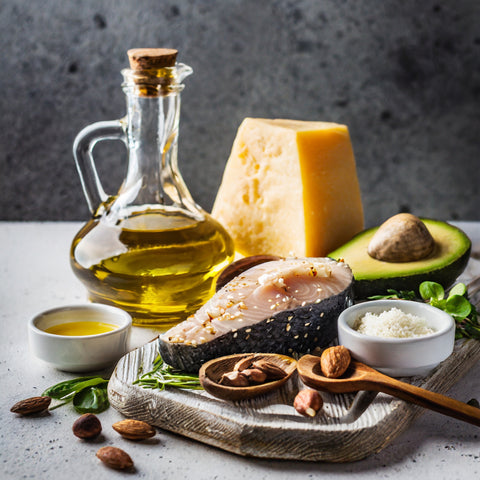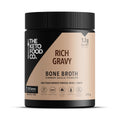Welcome to the world of ketogenic living! If you're on this journey, you already know that fats are the cornerstone of the keto diet. But not all fats are created equal. To harness the full potential of this high-fat, low-carb lifestyle, understanding which fats to embrace and which to avoid is crucial. Let’s dive into the world of fats and learn how to make them work for you on keto.
The Good: Fats to Embrace
1. Monounsaturated Fats (MUFAs)
Monounsaturated fats are your keto diet superstars. Found in olive oil, avocados, and nuts like almonds, they're known for heart health benefits and aiding in weight management. Include avocados in your salads, cook with olive oil, and snack on almonds for a MUFA-rich diet.
2. Healthy Polyunsaturated Fats
Polyunsaturated fats, particularly Omega-3s, are essential for brain health and fighting inflammation. Fatty fish such as salmon and mackerel are excellent sources. Flaxseeds and walnuts can also boost your Omega-3 intake. Balance is key here – aim for a healthy ratio of Omega-3 to Omega-6 fats.
3. Saturated Fats
Contrary to past beliefs, saturated fats have a place in the keto diet. Animal fats, butter, ghee, and coconut oil are all good choices. They provide stability at high cooking temperatures and can be a part of a healthy ketogenic diet when consumed responsibly. Saturated fats are typically solid at room temperature.
The Bad: Fats to Avoid
1. Trans Fats
The real villains in the world of fats are trans fats. Found in processed foods, margarine, and partially hydrogenated oils, these fats increase the risk of heart disease and type 2 diabetes. It’s best to avoid these completely. Always check food labels for hidden trans fats.
2. Excessive Omega-6 Fats
While Omega-6 is essential, an excess can promote inflammation. Common culprits include vegetable oils like soybean, corn, and sunflower oil. Our modern diet often contains too much Omega-6, so be mindful of your intake.
Tips for Managing Fats on Keto
- Quality Over Quantity: Opt for high-quality, minimally processed oils and fats.
- Cooking Stability: Use fats like coconut oil and butter for high-temperature cooking to avoid oxidation.
- Diverse Sources: Include a variety of fat sources in your diet to ensure a range of nutrients.
- Moderation is Key: Remember, even on keto, fats should be consumed in moderation according to your caloric needs.
Incorporating Healthy Fats into Your Keto Diet
Creating a keto-friendly meal plan that’s rich in healthy fats can be both fun and delicious. Start your day with eggs cooked in butter or coconut oil. For lunch, consider a salad dressed in olive oil and topped with avocado and nuts. Dinner can be a serving of salmon or a grass-fed steak, paired with vegetables sautéed in ghee or olive oil.
Conclusion
Understanding the role of different fats and how to incorporate them into your diet is essential for a successful and healthy keto journey. Embrace good fats, avoid the bad, and enjoy the diverse world of delicious and nutritious foods that align with your keto goals. Remember, a balanced approach to fats will not only support your ketogenic lifestyle but also contribute to overall health and well-being. Happy keto living!






Comments (0)
There are no comments for this article. Be the first one to leave a message!